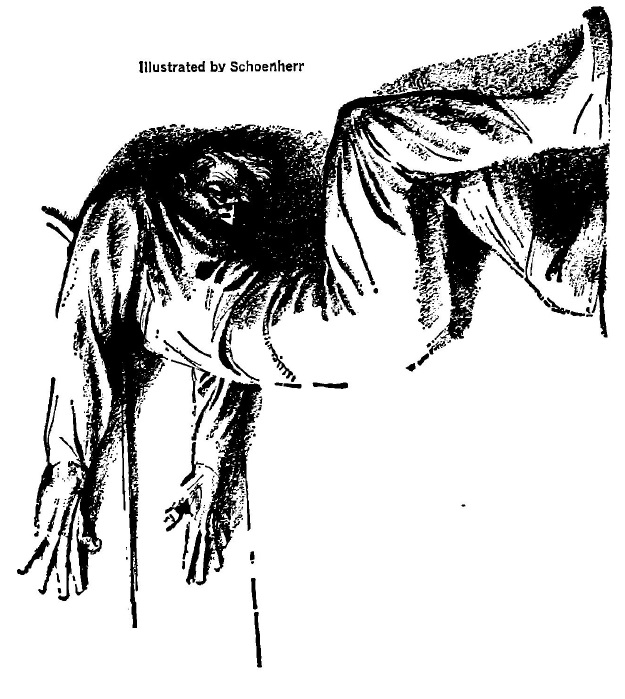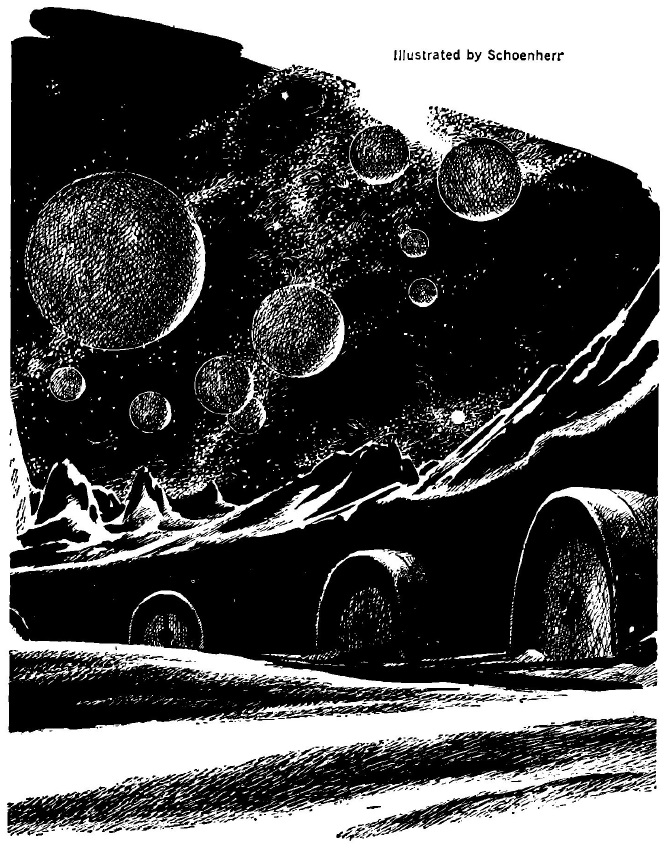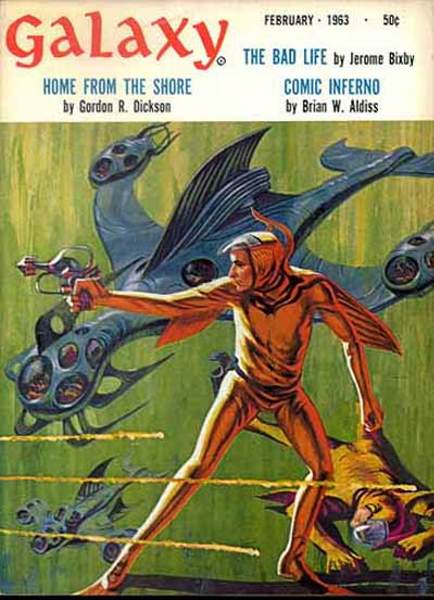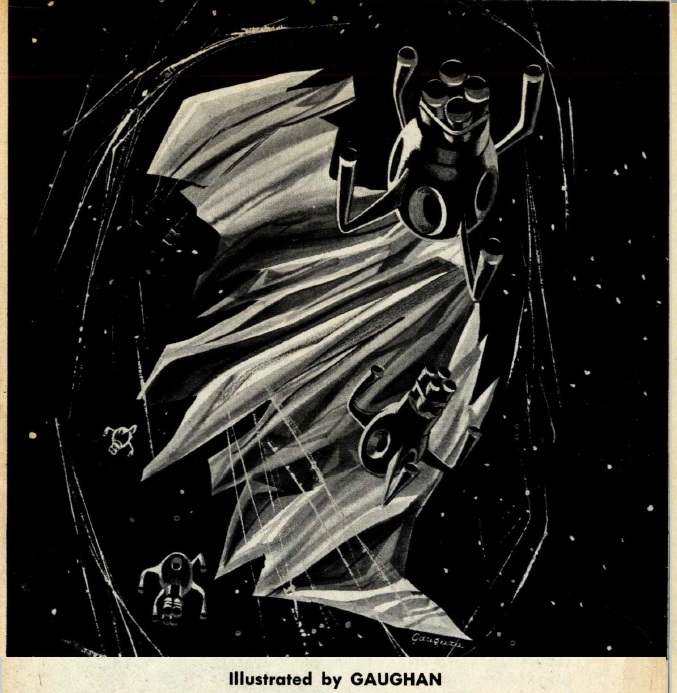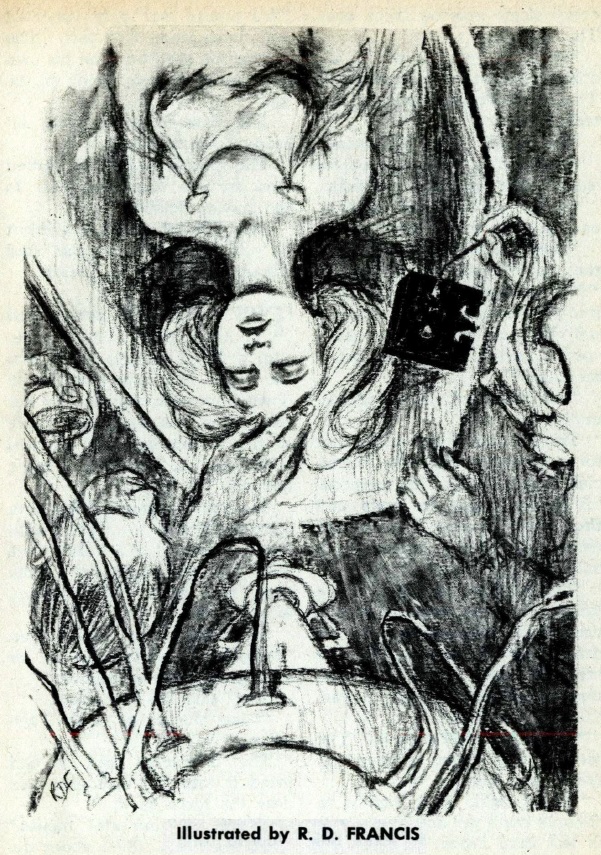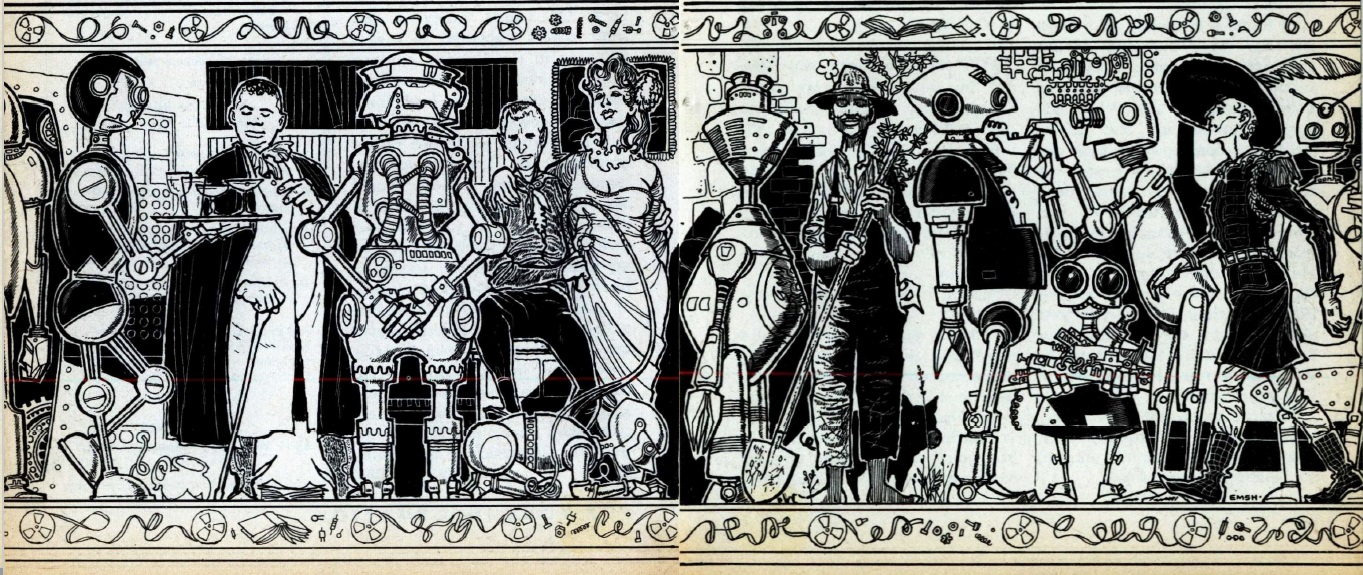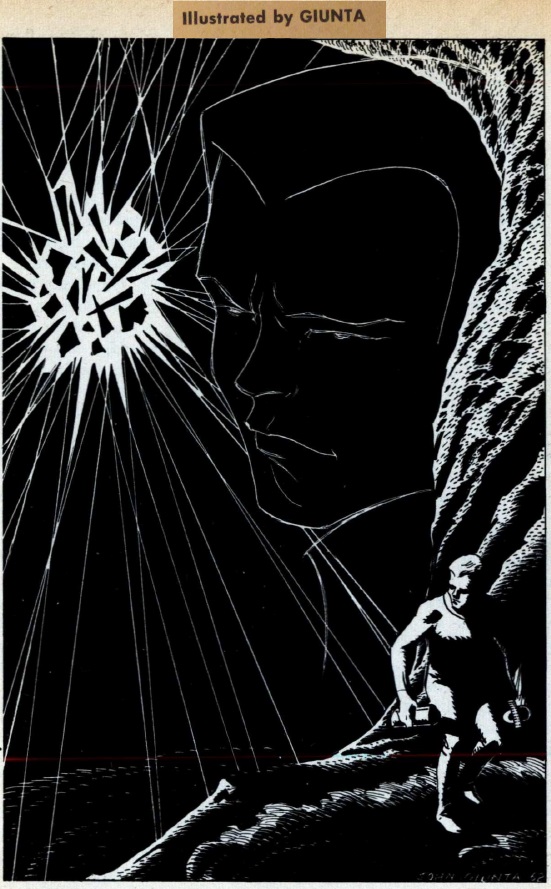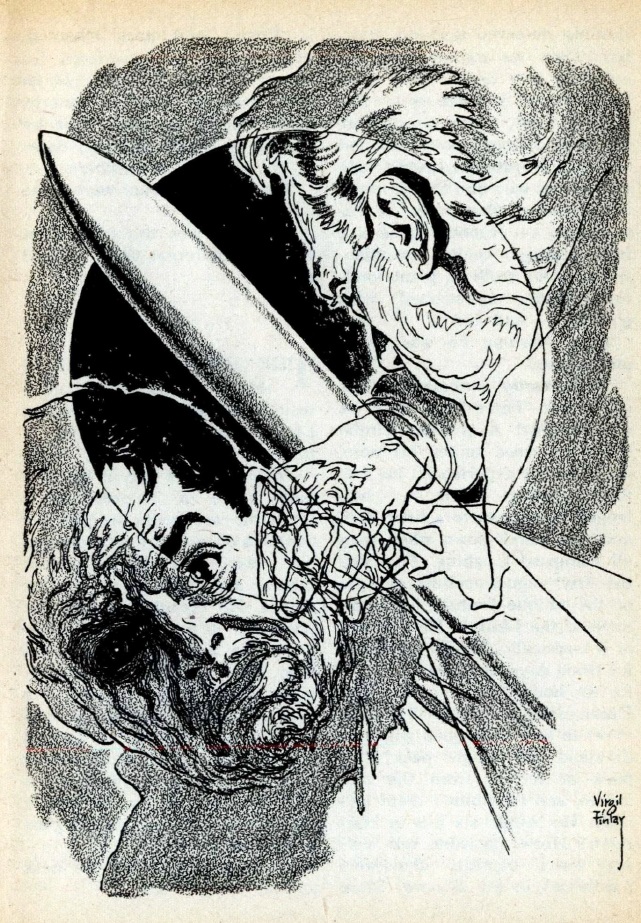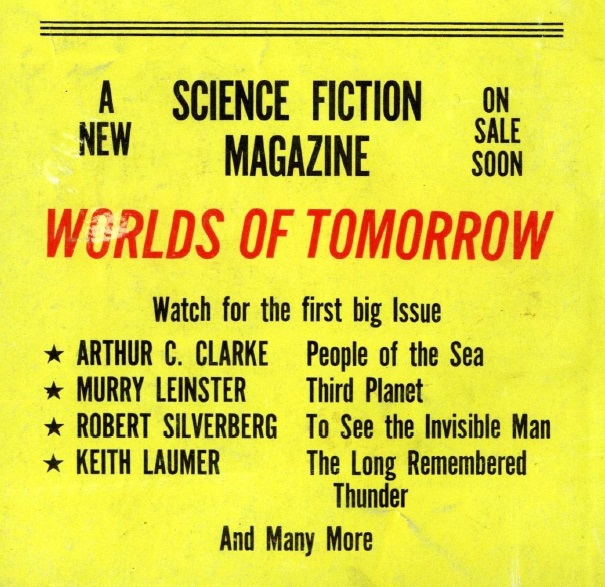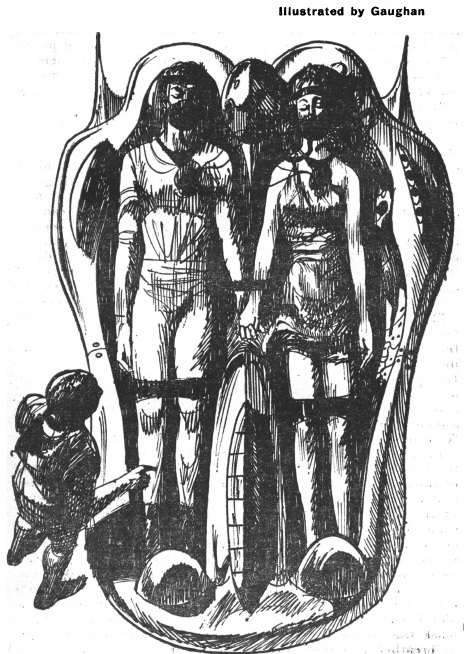
by Gideon Marcus
Around the world, events herald a heightened rate of change. Civil Rights marchers and boycotters in Birmingham, Alabama have been met with fire hoses, attack dogs, and mass incarceration. Casualty reports for servicemen killed in Vietnam are becoming a weekly occurrence. In a more hopeful vein, the nuclear test ban group at the United Nations appears to be making good progress, and it has been reported that the White House and Kremlin will soon be bridged by a "Hot Line:" a secure teletype link for instant communications.

And yet, within the latest pages of Galaxy, a magazine that established the vanguard of new-type science fiction when it came out in October 1950, it appears that time has stood still. The proud progressive flagship appears to be faltering, following in the footsteps of Campbell's reactionary Analog. It's not all bad, exactly. It's just nothing new…and some of it is really bad. Is it a momentary blip? Or is Editor Pohl saving the avante-garde stuff for his other two magazines?
In any event, here it is, the June 1963 Galaxy:
Here Gather the Stars (Part 1 of 2), by Clifford Simak
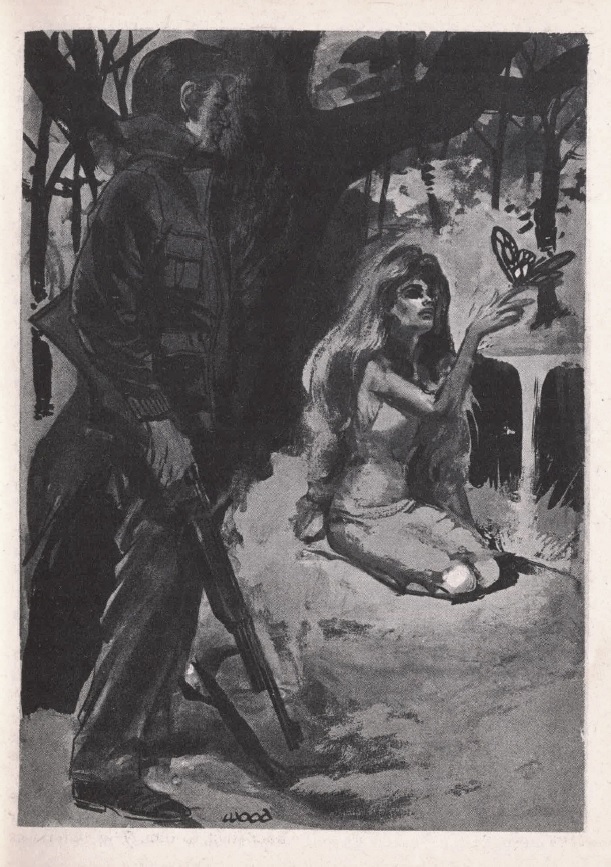
A century after the American Civil War, Union soldier Enoch Wallace is found to still be alive on his Wisconsin family homestead. Amazingly, he has retained his youth, as has his home, despite the age-decay of the nearby farmhouses. The government puts the solider under 24-hour surveillance. Yet, all they are able to learn of the reclusive man is that he no longer farms, goes for a walk for an hour a day, potters in his garden for short periods, and his only "friends" are the mailman and a deaf-mute young woman, a sort of local witch.
We soon learn, however, that Wallace's home is actually a galactic way station, a transfer point for teleporting aliens. Both the home and Wallace (when he is inside) are freed from the ravages of time. Day-in and day-out, members of an incredibly diverse collection of extra-terrestrials are translated across the light years into the station's holding tanks. These are essentially copies of originals — great energies create new beings at each station, killing the earlier copies. The corpses are then discarded. It's a grisly kind of travel, when one thinks about it, and it certainly leaves little room for an eternal soul that clings to a physical form.
Simak is one of the great veterans of our field, and he has been a staple of Galaxy since its inception. He is unmatched when it comes to evoking a bucolic charm, and he has a sensitive touch when conveying people (human or otherwise). This particular tale begins promisingly, but it meanders a bit, and it frequently repeats itself. Either over-padded or under-edited, it could do with about 15% fewer words. Three stars so far, but I have a feeling the next half will be better.
The Cool War, by Andrew Fetler
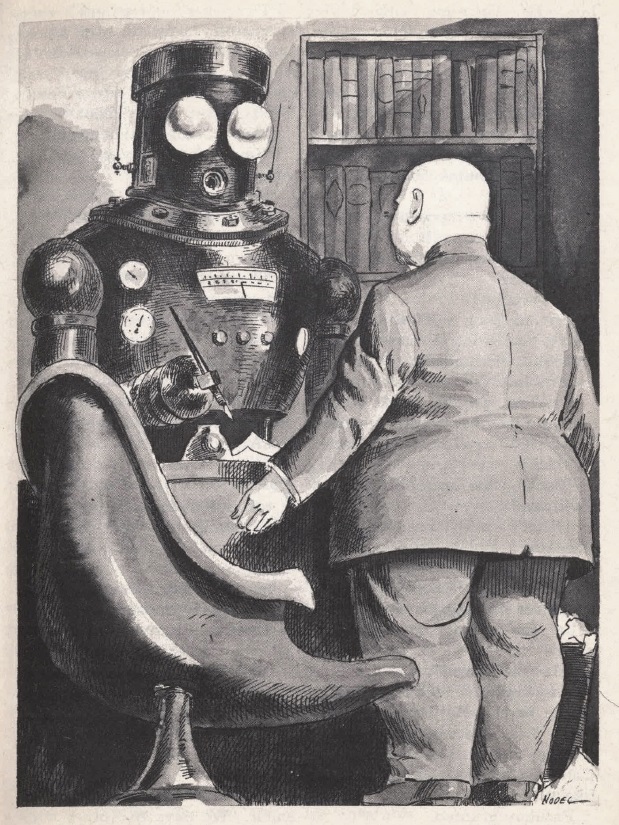
In contrast to Simak, Fetler is a newish author and a decidedly minor one. He's finally made the jump from IF to Galaxy (a step up in pay and prestige), but I don't know how he earned it with this piece, a satire in which robots are used to replace political notables. It's not very coherent, and it's not at all fun. One star.
For Your Information, by Willy Ley

This month's science article is surprisingly good. The surprise isn't that Willy wrote a good piece — he's the reason I became a Galaxy subscriber in the first place, 13 years ago. No, it's because I hadn't expected to be interested in the subject matter.
The topic is sounding rockets, those missiles that carry scientific packages into space but not into orbit. They tend to get little press compared to their bigger cousins, and I've been as guilty of neglecting them as everyone else. Yet hundreds of these little guys are launched each year by more than a dozen countries, and the scientific return they offer is staggering, particularly in consideration of their low cost. Plus, the development of these small boosters has direct application to the creation of big ones.
Four stars. Worth reading.
End as a Hero, by Keith Laumer

Kayle, a space-traveling psychologist is captured by the mind-controlling Gool and implanted with a mission to destroy the Terran Federation at its source: Earth. But the aliens have picked the wrong subject for this treasonous task. For Kayle has erected barriers to suggestion while giving himself access to the Gool mind-trust, thus turning the tides. Now the race is on — can he make it back to Earth and give humanity the secret to instantaneous teleportation before his military colleagues kill him out of an abundance of caution? And is Kayle really the one calling the shots, or is it just part of a many-layered Gool plot?
It's a strange Rube Goldberg of a tale, and if you stop to think about it, it falls apart. Yet Laumer is quite a good writer., and sort of makes it work. Think of it as a straight Retief story. Three stars.
The Faithful Wilf, by Gordon Dickson

The interstellar Nick and Nora are back in their third diplomatic mystery adventure. Unfortunately, unlike the last one (which appeared in a truly excellent issue of Galaxy), Wilf is wretched. The female half of the pair is ignobly reduced to whining and simpering, and the story is told so elliptically that I'm still not quite sure what happened. It's a shame because Dickson, when he wants to, is one of the genre's better writers. But he only wants to about a third of the time… One star.
The Sellers of the Dream, by John Jakes

Last up is an "if this goes on tale," taking the trend of planned obsolescence to its ludicrous end. Not only are clothes, furniture, and cars all disposed of on an annual basis, but even personalities and bodies are swapped. Not by stodgy males, of course, but that will come soon enough. Sellers is the story of an industrial spy who discovers that this year's body model is, in fact, a tragically altered ex-fiancee.
Thus begins a most improbable scheme to save the captive woman that leads our hero to the wastes of Manhattan, a decrepit penal colony for reactionaries who cling to the notion that things have permanent value. Along the way, the spy learns the awful secret behind the 21st Century economy.
Author John Jakes has flitted across the various SF magazines for more than a decade. He occasionally produces a work of art. More frequently, he write mediocre space-filler. Sellers is neither. While the story doesn't make a lot of sense, the satire is worthy, and I found myself interested the whole way. Call it an idea piece. Three stars.
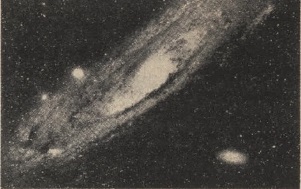
In the end, this month's Galaxy probably won't make you cancel your subscription, but it will leave you pining for change. Well, every month brings new opportunities (or in the case of this bimonthly magazine, every other month.). Until then…





